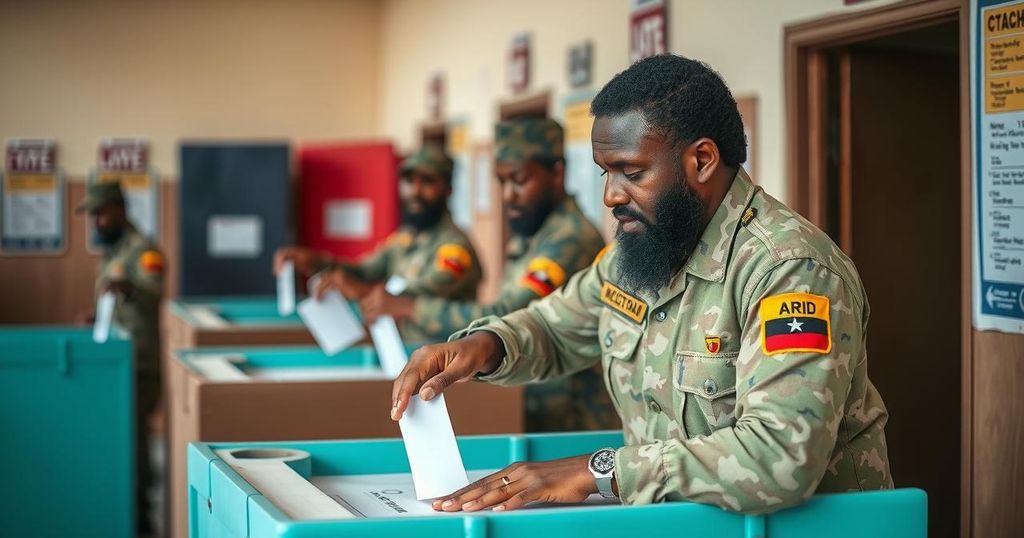Chad’s recent general election aimed to end military rule but saw low turnout due to an opposition boycott. Critics claim predetermined results, while the government emphasizes the elections as crucial for transitioning to democracy. Amidst skepticism, the situation remains fraught with concerns regarding electoral integrity and societal challenges.
Chad held a general election on Sunday as proclaimed by the government to mark a critical step toward concluding military rule. Despite this effort, early reports indicated a low voter turnout of approximately 38 percent, primarily due to an opposition boycott. Opposition leaders urged the populace to refrain from participating, asserting that election results had been predetermined.
President Mahamat Idriss Deby Itno, who assumed power following a military takeover in 2021, called upon citizens to vote actively, deeming the occasion a “historic day.” Conversely, opposition figure Succes Masra criticized the elections, stating that the results were fabricated before the voting commenced. Voter disillusionment was echoed by various citizens who expressed skepticism about the electoral process and the prospects for meaningful change.
While traditional voters such as soldiers and nomads cast their ballots a day earlier, the circumstances remained contentious, especially following claims of missing ballots in critical regions. The upcoming elections emerged against a backdrop of humanitarian challenges, including the ongoing Boko Haram threat and socio-economic crises exacerbated by climate change.
The election was purported to signal the final transition to democracy in Chad, with international observers on hand to ensure fairness amid allegations of fraud and corruption from opposition parties. As the day progressed, polling stations remained available until the evening, with citizens hoping to influence their local governance despite the gloomy outlook regarding their electoral system.
Chad has been under military leadership since April 2021 when Mahamat Idriss Deby Itno took control following the death of his father, who had ruled for thirty years. The current general election is viewed as a pivotal moment towards restoring democratic principles, yet it has been marred by significant opposition dissatisfaction. The boycott led by opposition parties reflects deep-rooted concerns regarding electoral integrity and previous electoral fraud claims, shaping the political landscape in Chad and the citizens’ attitudes toward participation in these elections.
The recent general election in Chad has been characterized by low voter turnout and a marked opposition boycott, raising serious questions about the future of democracy in the country. Although the government portrays the elections as a step toward democratic transition, skepticism persists among the populace, reflecting their discontent with the current political environment. As the country navigates through these challenges, the implications of these elections will likely resonate throughout Chad’s political landscape for years to come.
Original Source: www.kpvi.com






